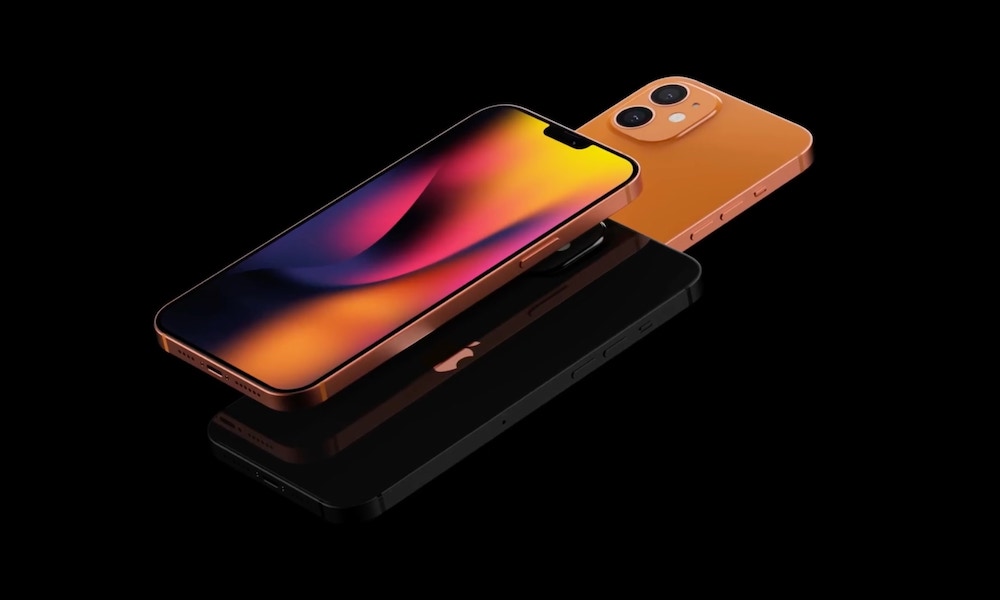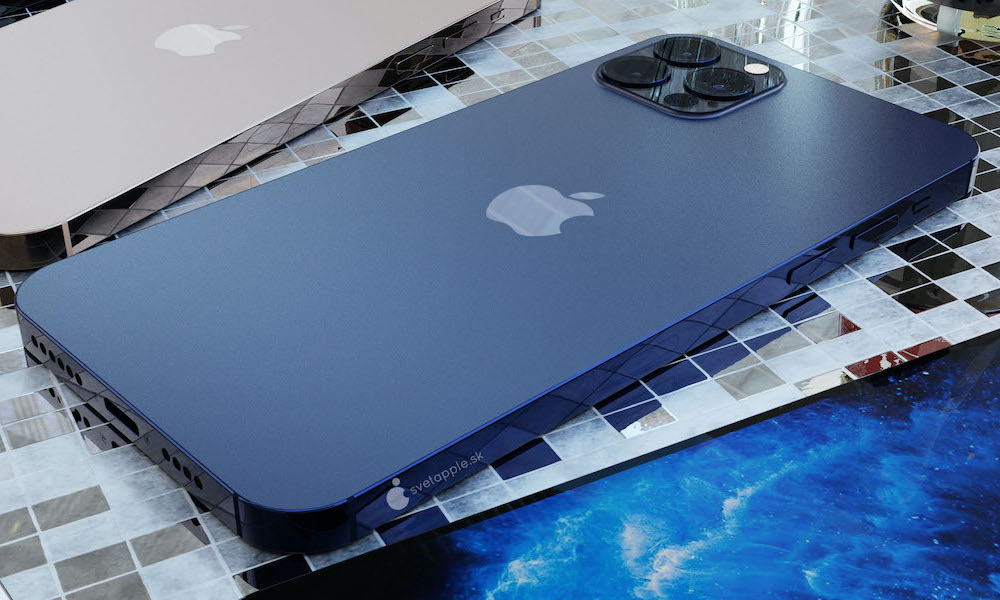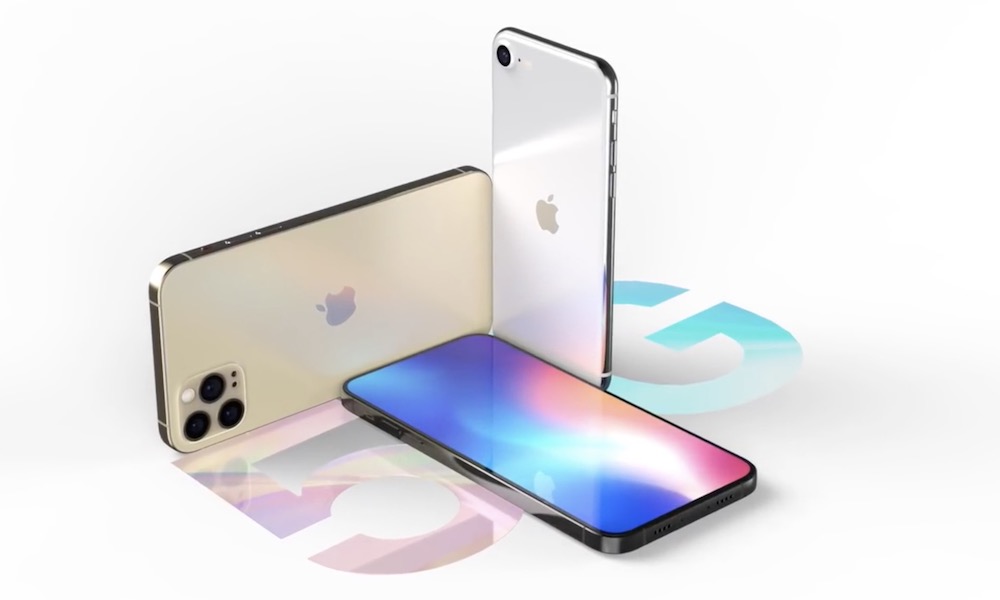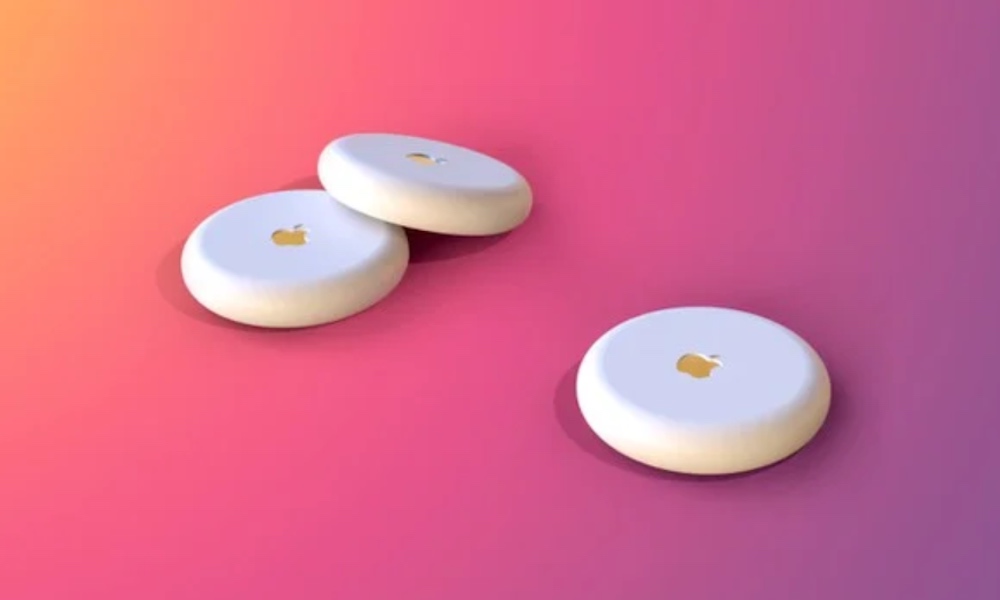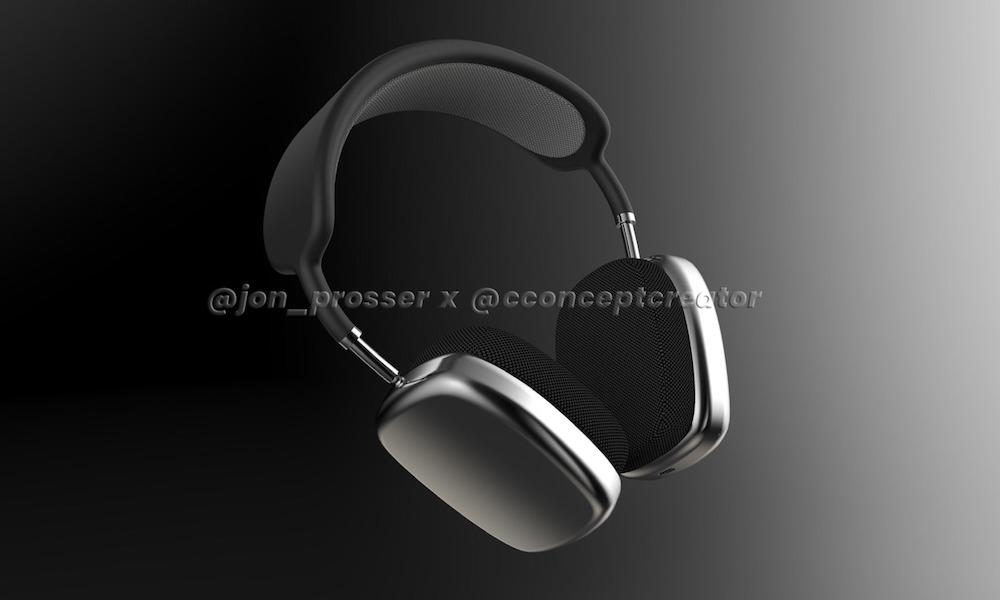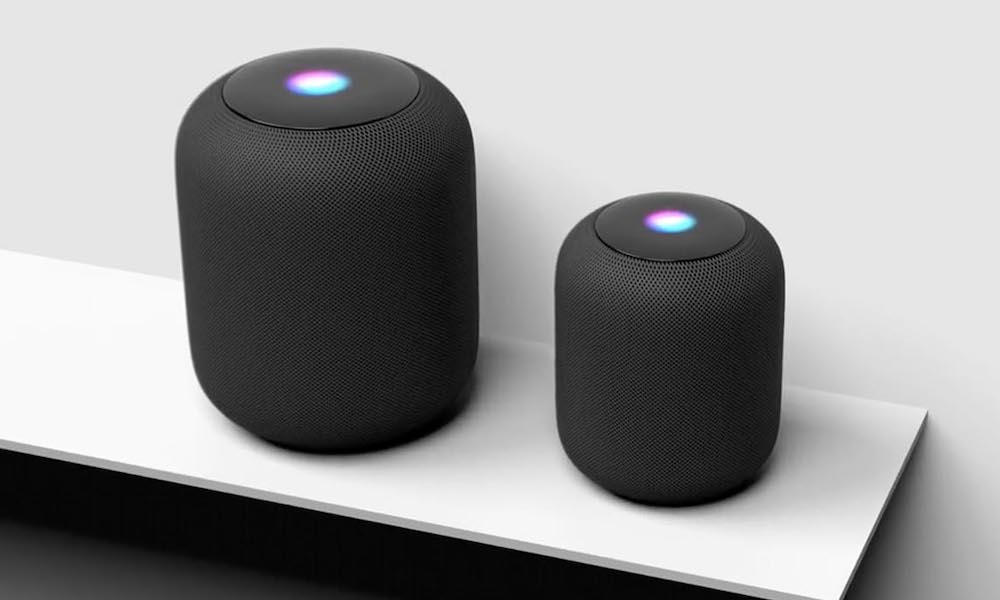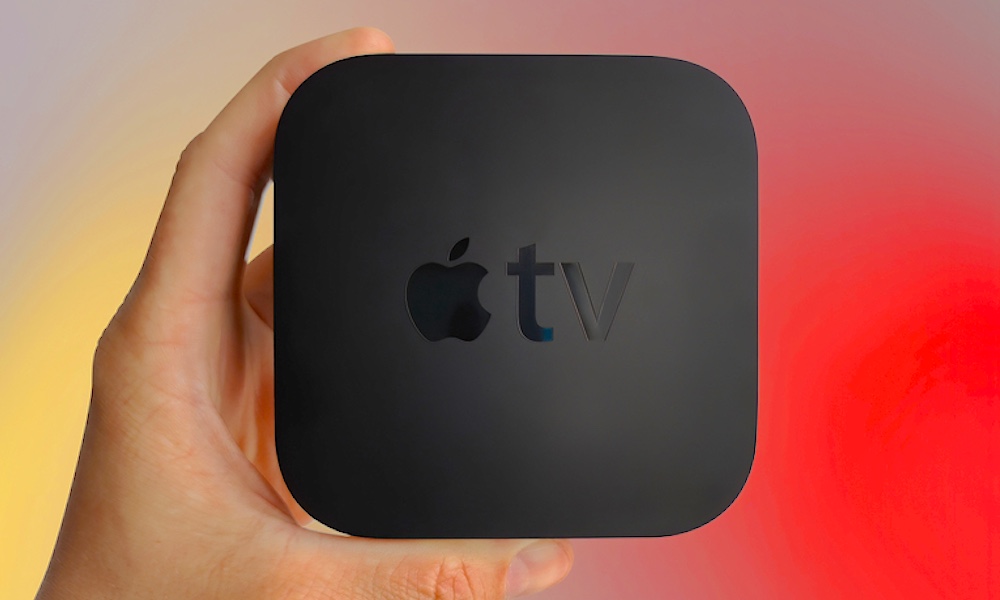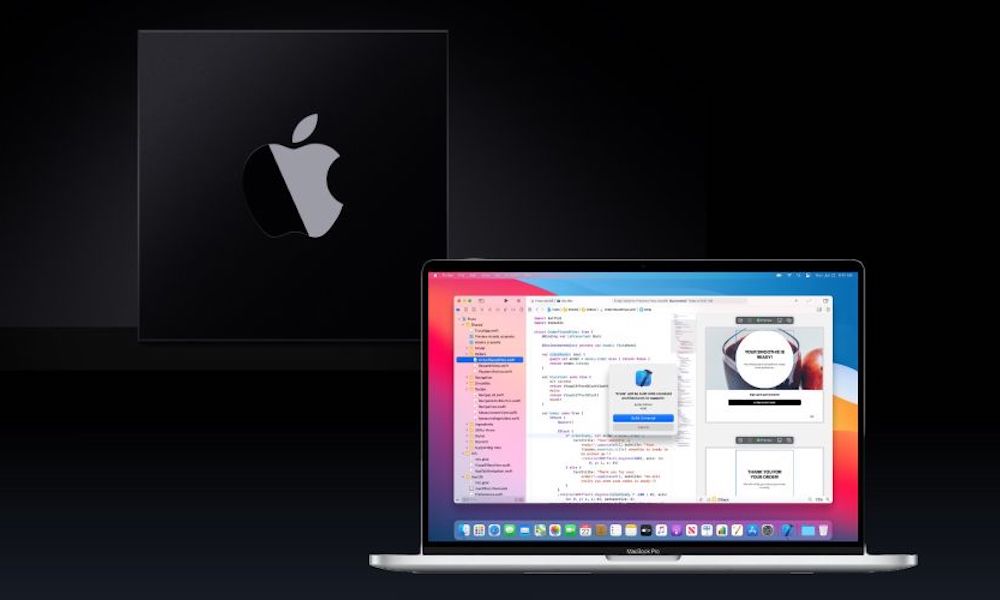7 Exciting Things We’re Hoping to See at Next Week’s Apple Event
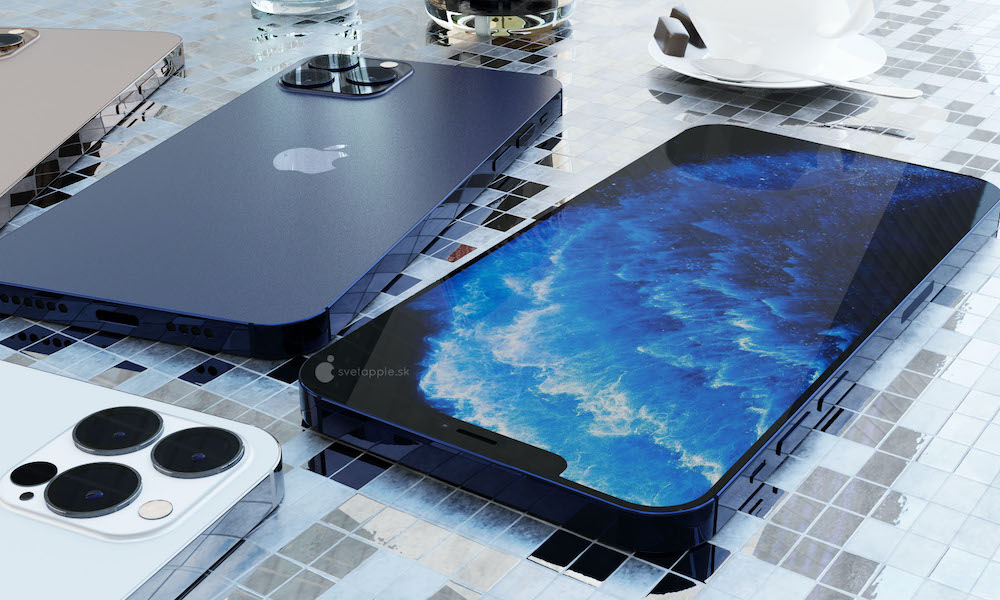 Credit: Svetapple.sk
Credit: Svetapple.sk
This week Apple officially announced what could very well be its biggest event of the year — the October 13 "Hi, Speed" event where it will almost certainly unveil its highly-anticipated iPhone 12 lineup.
However, while Apple's 2020 iPhones will definitely be the stars of the show, that's not all we're expecting to see next week. Apple has a lot of other products in its pipeline right now, and we've been hearing for months that at least several of these were imminent, so unless Apple plans to hold yet another event this fall, it's a safe bet that next week's event will be about more than just the iPhone 12. Read on for all of the exciting things we're hoping to see Apple unveil on October 13th.
The iPhone 12 mini
It's pretty much a given that next week's event is going to be all about the iPhone, and by now we also have a pretty good idea of what Apple is going to announce, although the company does always leave room for a surprise or two.
However, we still expect the biggest iPhone announcement this year to be the addition of the "iPhone 12 mini" — a diminutive 5.4-inch version of Apple's entry-level iPhone that's expected to hearken back to the days of the much more pocketable iPhone 5s and first-generation iPhone SE design.
Even though 5.4 inches sounds like a lot more than those earlier four-inch models, it's important to remember that this is about the screen size and not the physical dimensions. As we saw with the 5.8-inch iPhone X, which came in at around the same size as the 4.7-inch iPhone 8, eliminating the bezel can make a big difference.
This will of course also be accompanied by a 6.1-inch iPhone 12 which is expected to basically be a direct successor to the iPhone 11. Both models will gain an OLED screen and Apple's faster A14 processor, and although they'll retain the same two-camera system as the single model that came before, they're expected to adopt a flat-edged design that's also more similar to the original iPhone SE and current iPad Pro. Most rumours also suggest that both of the standard iPhone 12 models will go on sale shortly after the event.
The Blue iPhone 12 Pro
If the iPhone 12 mini is the dark horse in the 2020 iPhone race, the pair of Pro models is a much more linear march forward from their iPhone 11 counterparts.
The iPhone 12 Pro and iPhone 12 Pro Max are expected to be direct replacements for the two current iPhone 11 Pro models, where they'll also gain the flat-edged style, bringing Apple's design language in sync between all of its mobile "Pro" devices. Perhaps because of this design change, the screens will be increasing slightly in size, with the smaller iPhone 12 Pro getting a bump to 6.1 inches while the iPhone 12 Pro Max will increase to 6.7 inches.
Notably, this also means that both the iPhone 12 and iPhone 12 Pro will be the same size, and very likely feature the exact same design and use the same cases; this seems to have been confirmed by leaked photos of Apple's own first-party cases that we saw last month. However, as with last year's Midnight Green iPhone 11 Pro, Apple is expected to have yet another new exclusive colour for the iPhone 12 Pro, with Navy Blue replacing Midnight Green.
Feature-wise, the iPhone 12 Pro will also retain the same three-camera system as the iPhone 11 Pro models, although it's safe to say that we can expect to see some bumps in the actual sensor specs this year. It's also all but certain that the iPhone 12 Pro will be gaining the LiDAR Scanner that made its debut on the 2020 iPad Pro this past spring, where it will likely also be used to power advanced photography features rather than just augmented reality apps.
On the downside, it looks like Apple's plans for putting a better 120Hz OLED display in the iPhone 12 Pro were dashed due to component shortages, which means that this year we may actually see the same OLED display technology used across Apple's entire iPhone 12 lineup.
mmWave 5G
Despite some rumours that Apple planned a 4G LTE only version of the iPhone 12, at this point, every report agrees that Apple's entire iPhone 12 lineup will gain 5G technology, although so far analysts have only been able to agree that it will be sub-6GHz 5G across the board.
In fact, if we had to guess, we'd say that this is what the "Hi, Speed" tagline for the event is actually hinting at since faster iPhones aren't really news, but faster cellular technology most certainly is.
However, support for the faster mmWave 5G has been a bigger question mark, with some reports suggesting that power and antenna limitations could mean Apple can only fit it into the larger iPhone 12 Pro Max, while veteran analyst Ming-Chi Kuo, who is more often right about these things than not, has repeatedly maintained that Apple is making mmWave 5G versions of every one of its four iPhone 12 models.
To be clear, however, that doesn't mean that every iPhone 12 that Apple sells will be mmWave capable. Apple has reportedly still had some struggles in producing the 5G antenna modules, and frankly, the vast majority of the world's carriers haven't rolled out mmWave support yet anyway. Most analysts agree that mmWave 5G iPhones will only be available in those countries — and on those carriers — that actually offer mmWave 5G support, while everybody else will get the sub-6GHz versions, regardless of model, which may be disappointing for those who were hoping to be ready for the future of even faster 5G speeds.
AirTags
Other than the new iPhones, Apple's most-rumoured and most-anticipated product is its AirTags Bluetooth location tracking tags, which we've been hearing about for well over a year now.
In fact, the reports began before Apple even unveiled iOS 13 in the spring of 2019, and when code was found in the early iOS 13 betas, it seemed to strongly suggest that Apple's AirTags were going to be arriving sooner rather than later, so when 2019 ended with nary a sign of them, it really left a lot of us scratching our collective heads, especially after Apple debuted its new U1 Ultra-wideband chip in its iPhone 11 lineup last year, which was seemingly made for precise location tracking of devices like AirTags, but didn't really get put to any good use beyond a slight improvement to locating other iPhones for AirDrop.
Recent reports have suggested that AirTags are in production now, however — to the point where we almost expected Apple to unveil them at last month's Apple Watch event, but it would sort of make sense that it's saving that reveal to go alongside the iPhone 12 since that's the device most people will be using to actually locate the AirTags.
As to why it's taken this long? Only Apple knows for sure, but we suspect that the company may have run into a few engineering challenges, and wasn't about to repeat the AirPower debacle of pre-announcing something before it was 100% certain it could pull it off.
AirPods Studio
Apple's on-ear headphones is another project that we've been hearing about for years, and while it does seem like it may have had a few setbacks in trying to figure out exactly what it could do with its own on-ear headphones, back in the spring the rumours of what was actually coming started to seriously solidify, with some even suggesting that Apple could have unveiled them at WWDC in June.
While that didn't happen, there are reports that they've been in production in Vietnam since at least the spring. Apple has pulled all competing products from its stores last week, which is the best indication we've seen that its own first-party headphones are coming very soon, and with rumours that they're expected to also include Apple's U1 chip, it seems appropriate to announce them alongside the AirTags.
HomePod mini
Apple's smart speakers have been on the back burner for a while, and although we've heard that the company has been working on a HomePod mini, we haven't heard too much about it lately, and in fact, it wasn't until the news earlier this week that Apple has booted all other speakers out of its retail stores that it began to sound like Apple may be getting ready to finally unveil this lower-cost HomePod alternative as well.
While this also presents the possibility that Apple could choose to release a second-generation model of the larger HomePod as well, a more recent reliable leak suggests that this won't be happening until next year. For now, it looks like Apple just wants to get the smaller and lower-cost smart speaker out onto the market, and probably has bigger plans for its flagship HomePod.
A New Apple TV
A new Apple TV lands more solidly in the "maybe" pile, as there have been a lot of conflicting rumours about what's coming. However, an update to Apple's set-top box is long overdue, so we're certainly hopeful that Apple will announce something next week in the form of a more powerful device that can handle the increasing demands of Apple Arcade gaming.
To be honest, we're surprised that Apple didn't release a refreshed Apple TV last year when it debuted Apple Arcade, instead of requiring gamers to limp along on the old A10X version with only 64GB of storage. For whatever reason, however, Apple obviously decided that the addition of game controller support in tvOS 13 was enough to tide users over, and it probably simply had other design and engineering priorities to work on, leaving the Apple TV on the back burner.
Earlier this year we heard that an A12-equipped Apple TV was in the works, and in fact, some even suggested it would see a spring launch. However, conflicting reports later appeared from some pretty reliable sources saying that a new Apple TV wouldn't be coming until sometime in 2021, along with the possibility that Apple was planning on putting an A14X chip into it instead.
It wasn't until this week that a new rumour actually tied the two together in a way that makes sense, suggesting that Apple has not one, but two new Apple TV's in the works. While that's far from definitive at this point, there is some logic to the fact that Apple at least had two versions of the set-top box in development. What's not known is whether the plans for an A12-equipped version have been scrapped and they will simply move straight to the A14X one next year, or whether the company actually plans to release two models — and if so, will it wait until next year to release them as an Apple TV and "Apple TV Pro" or is it going to release the A12-equipped one first this fall?
What We Won't See
Apple likely still has more up its sleeve for this fall, but while there's at least one big product category that still needs to be covered, we're not expecting it to get any stage time next week.
We're talking of course about the Apple Silicon MacBooks. Apple announced its transition to using its own first-party chips back at WWDC in June, strongly suggesting that we'll see the first A14X-equipped Macs appearing this year in the form of updates to Apple's 13-inch MacBook Air and MacBook Pro lineup, as well as the possibility of the resurrection of the 12-inch MacBook in Apple Silicon form.
When it comes to Macs, Apple has almost never debuted new hardware at an iPhone event; instead, when it does have something significant enough to announce in the Mac family, it hosts a second event in late October. Although next week's event will technically be a second Apple event in October, this isn't going to be about the Mac, and in fact, Apple Silicon MacBooks are too big of a deal to share the stage with the iPhone 12 lineup. We'd say to expect Apple to host a third virtual event this year, likely in November, to actually show off its first Apple Silicon machines.
Along the same lines, even though Apple's new iPad Air now features the fastest chip found in an iPad, we're not holding our breath for a new iPad Pro next week. Most reports suggest that we won't see any new iPad Pros until early next year, when they'll be moving to Apple's new mini-LED display technology, although there's a very slight possibility that Apple could have something to announce this fall — there are reports that the 12.9-inch iPad Pro may be ready ahead of schedule — we'd expect that to coincide with Apple's Mac event, especially since the next-generation iPad Pros are expected to feature the same A14X chip as Apple's new MacBooks.

